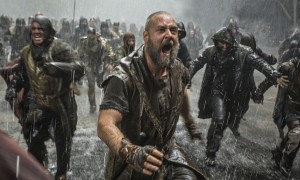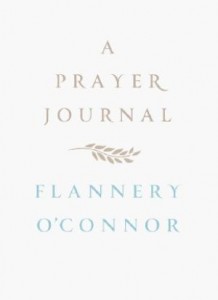[Excerpted from the upcoming 2014 book, Little Gems: Better Notes on Story and Screenwriting]
Ethics is knowing the difference between what you have a right to do,
And what is right to do.
Potter Stewart
From an ethical standpoint, being an artist or storyteller is not like working at Walmart. Chances are, the woman stocking a shelf with deodorant is not wrangling inwardly with whether her task is moral and worthy or whether she will have to answer for it either in court or in eternity.
One of the main things people are paying for in art is the creator’s point of view. It’s particularly true in a writing career. Even if a writer only has their own deep angst and confusion to share, the audience has a right to it and all the humiliating accompanying experiences that have made the writer an authority on that confusion. The act of putting oneself out there involves constant choices about what to say and how to say it. Choice implies risk. Risk implies danger. Being a writer means you have to be up for losing friends and alienating family because of your work. You might lose other jobs. You may become a political or social football without anybody asking you if you want to or not. Much, much more dangerous, is if you repeatedly make bad choices, you could lose your integrity, self-respect, optimism and eventually your soul.
What Comes With the Territory of being a professional artist is that, if you are the kind of person who cares about others at all, you will face many more ethical dilemmas than people in other fields. Your life will mean you experience a lot more angst than do gas station attendants. You’ll have to worry about compromising too much, and if you do achieve commercial success, you will surely get hate mail from people who think you are corrupting the world. Hollywood is a place where, because the money and influence are great, the stakes can be very high.
There will be occasions when you will be pressured to violate your ethics in order to thrive. I remember once being in a room with some producers who wanted to buy my script about Emily Dickinson. They were concerned that while it was an art film, it “didn’t take enough risks for the art house circuit.” Some genius in marketing came up with the idea that we could secure another ten million in box office if we just made the little change of making Emily a lesbian. I told them several times using historical evidence that Emily Dickinson wasn’t, in fact, a lesbian. It didn’t matter. People started to get annoyed with me. The head of the development sector waved his hand at me, “We’re not making a documentary here.” Afterward, my agent chastened me saying, “Barbara, your integrity is your strong suit. Don’t over play it.” [I remember thinking at the time, “What am I, trapped in Glen Gary Glen Ross?”]
Ethical dilemmas are always uncomfortable, and again, when people are uncomfortable they tend to lash out and make messes. Messes writer tend to make because of creative dilemmas include:
➢ Makes you not want to think about things too much;
➢ Makes you over-simplify complex matters;
➢ Makes you confused and frustrated;
➢ Makes you turn over responsibility for your life to someone else;
➢ Makes you mad at people who confront you;
What complicates all of this for Christians, is that we have grown up in such polarized ideological times, that our first impulses tend to be tinged with reactionary fear. My experience with many Christians today is that, as regards art, we only know what we like, but we have no idea what we are talking about. We can’t say for sure whether a particular choice as a writer or actor IS actually wrong. All we can be sure of is that our pastor back home, or our prayer group, or maybe our parents won’t like it. This means that we can’t just say to our people, “Trust your guts as regards art and media. Run away if it bothers you,” because many of our guts are unreliable guides. They might have us run from the very story that might bother us into depth. And of course, beauty is always going to be a little shock to the soul, but in a very good way.
I remember once asking a Christian audience if they would let their teenage sons and daughters gaze on The David by Michaelangelo. There was nervous laughter in the room, and then one lady raised her hand and said, “Honestly, no I wouldn’t. It would be like handing him a Playboy magazine right? Nude people are nude people.”
I responded to her that nudity isn’t the problem in art. The problem is obscenity. Obscenity comes from the Greek words for “Without” and “Context/Story.” David is not being exploited in Michaelangelo’s work as an anonymous object of erotic fantasy. He is being represented in his inner condition of utter nakedness/openness to God. If anyone feels shame considering The David, the problem is in them, not in the work of art.
On the other hand, it is another tenet of Christian ethics that the ends never justify the means. Pornography or the exploitation of a subject can never be redeemed by a good intention. This is why movies like P.T Anderson’s The Master are not great works of art, but rather offensive filth in pretentious clothing. The sad thing is how many Christian critics can’t tell the difference between The David and The Master.
The good news is, struggling with serious questions makes you a grown up. Big choices form and build character.
Ethical dilemmas can make you reach out for good counsel from wiser minds. This will make you a more thoughtful and humble person. You will find yourself living “the examined life,” which Plato assures us is the only life really worth living.
Finally, living in a risky profession means that your life has the potential to be a great adventure. You may not reach the stars, but you won’t end up with a handful of mud either.
Our strategy for coping with creative dilemmas is to never do anything that makes you gulp. You know what I mean? If you have to mentally toss back a few stiff drinks to make yourself do something, just don’t do it. St. Thomas Aquinas notes that we can never act when we are in doubt as to the rightness or wrongness of our actions because to do so would be conditionally willing evil. Now, as said earlier, it maybe that you are incorrect in feeling shame over whatever it is, so you have to clear up your issues, educate your conscience and get to a place where your guts are healthy guides. But in the meantime, you can’t do something if you think it might be wrong.
Secondly, build for yourself a network of prudent counselors for every aspect of the business. You should have good friends first and foremost with whom you can talk through situations that are challenging your values. Besides this, at different times you will need a good attorney, a good business manager, several good mentors in the business and, certainly, a pastor or spiritual guide.











